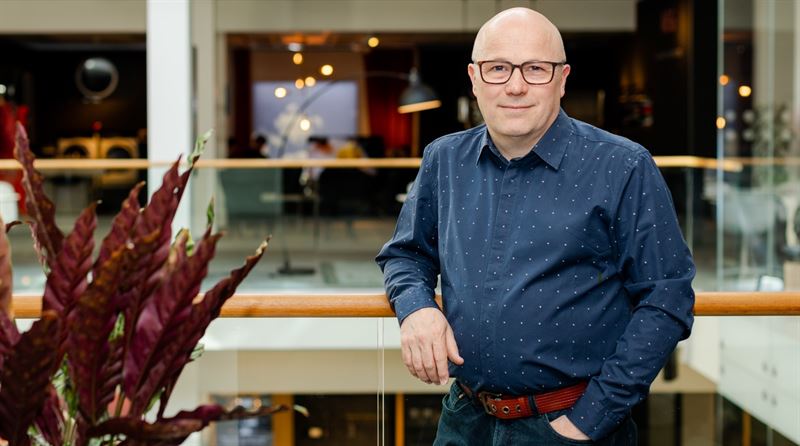Circularity is set to revolutionize the way we work as well as our consumer offering in the coming years. We speak with Barry Waddilove, Head of Circular Economy & Partnerships, about the latest steps to support the development of a more circular business at Electrolux Group.
Hi Barry! What is circular business?
Circular business aims to reduce waste and extend the useful life of products and materials. In circular business models the product/material/service enables repair, refurbishment or reuse, this generates value for a company more than once and thus delivers additional revenue whilst also improving environmental and social impact.
Where are we at with our circularity work at Electrolux Group?
We are on a journey to become more circular in everything we do – from designing products to be more durable, repairable and recyclable, to piloting repair services, leasing, appliance-as-a-service business models and appliance take-back schemes around the world. For Electrolux Group, circularity is an important part of our For the Better 2030 sustainability framework and while we have some exciting initiatives around the organization, it’s now time to take our work to the next level.
What is driving the market for circularity?
Circularity is partly being driven by legislation, such as the new EU Ecodesign Directive (ESPR) and targeted initiatives such as reparability labelling in France. But consumer interest is also driving rapid growth in second-life marketplaces online where people can find nearly new or refurbished items such as clothing, furniture and electronics.
What work have we done recently to understand more about the consumer experience of circularity?
In the second half of 2022, we began work with the University of Exeter’s Centre for Circular Economy and the consultancy Clarasys Ltd to develop a thorough understanding of the challenges around engaging customers in a circular economy. Alongside other companies such as John Lewis, Pernod Ricard and Waitrose, we contributed to a significant research study exploring many areas that influence consumer acceptance of new circular experiences. The work explored new methodologies across three stages of business model development:
1. Understanding consumer preference for circularity.
2. Designing circular brand experiences.
3. Delivering value in circularity for both the user and the business.
How are we applying the learnings from this work?
The insights help us to look beyond our hardware or physical appliances to our brand experience, and the services, interactions and connectivity that all play a part in value creation as we aim to extend a product’s life. We have used some of the methodologies developed during this study to map consumer journeys and understand key decision points in relation to circularity. It is really helping us to think about how we can anticipate consumer needs before they arise.
Going forward, the collaboration with University of Exeter will continue as its Centre for Circular Economy provides a valuable hub for world-leading research. This is still a pioneering field, and many companies are hungry for new methodologies and insights. Our work together ensures that we are well positioned to consolidate learning and improve our business approach accordingly.
How is the organization learning about circularity?
As we increasingly work with circularity throughout the commercial and consumer journey, new learning is required to address additional business stakeholder perspectives.
Enhancing our knowledge through training and collaborations is essential to bring about a circularity mindset across our organization. For example, some employees are currently taking part in the University of Exeter’s six-week online Circular Economy Masterclass, which is run together with the Ellen MacArthur Foundation.
There is also a variety of free online content for anyone interested in growing their knowledge on this subject such as the TU Delft introductory course here or the Ellen MacArthur Foundation podcast here.
What can you tell us about our recent circularity survey?
At the beginning of 2023, we developed a circularity survey for business in collaboration with Stena Circular Consulting and Nordic Sustainability. The survey enables companies to understand their organizational maturity in relation to both sustainability and circularity initiatives. The new survey was trialed with Electrolux Group in March 2023, and we will be the first of many companies to benefit from a growing knowledge base on the challenges faced by business in implementing strategic sustainability initiatives.
We now have the key stakeholder insights and engagement necessary to develop a more strategic and targeted approach delivering real value for our consumers and our business whilst also supporting our ambitious sustainability goals.



